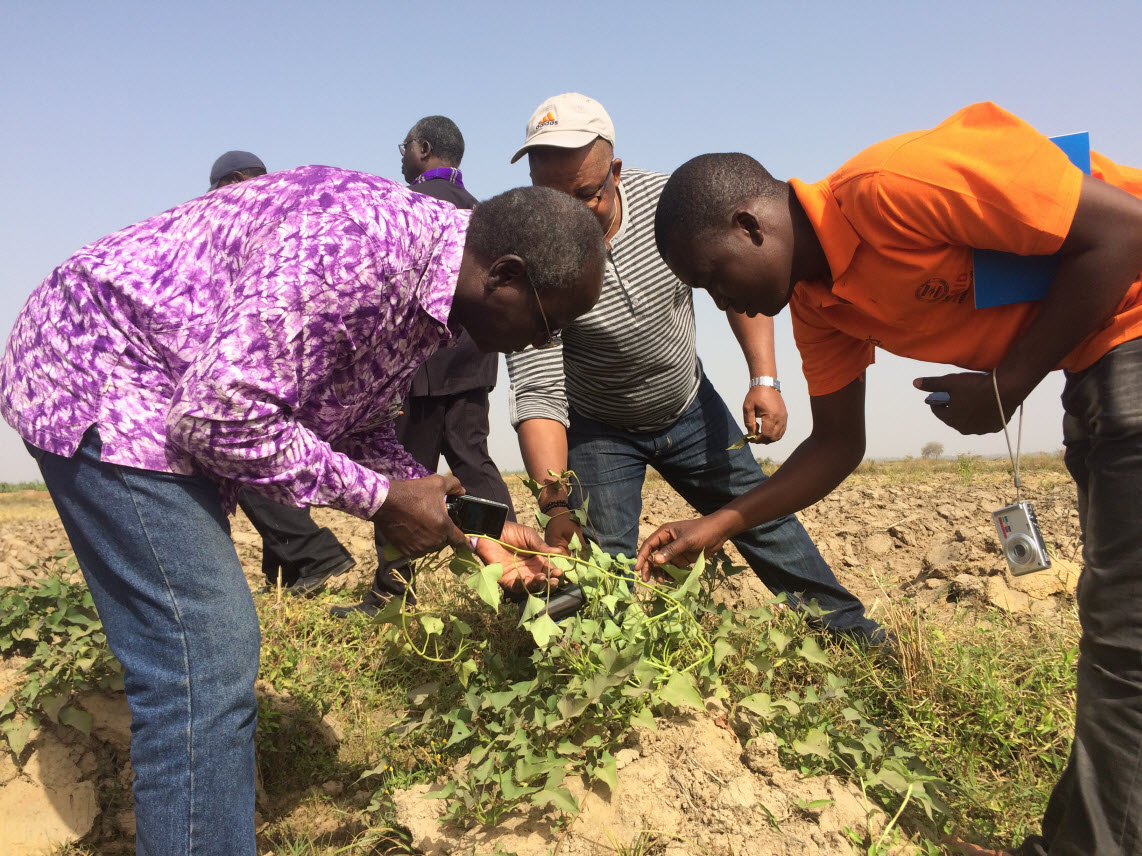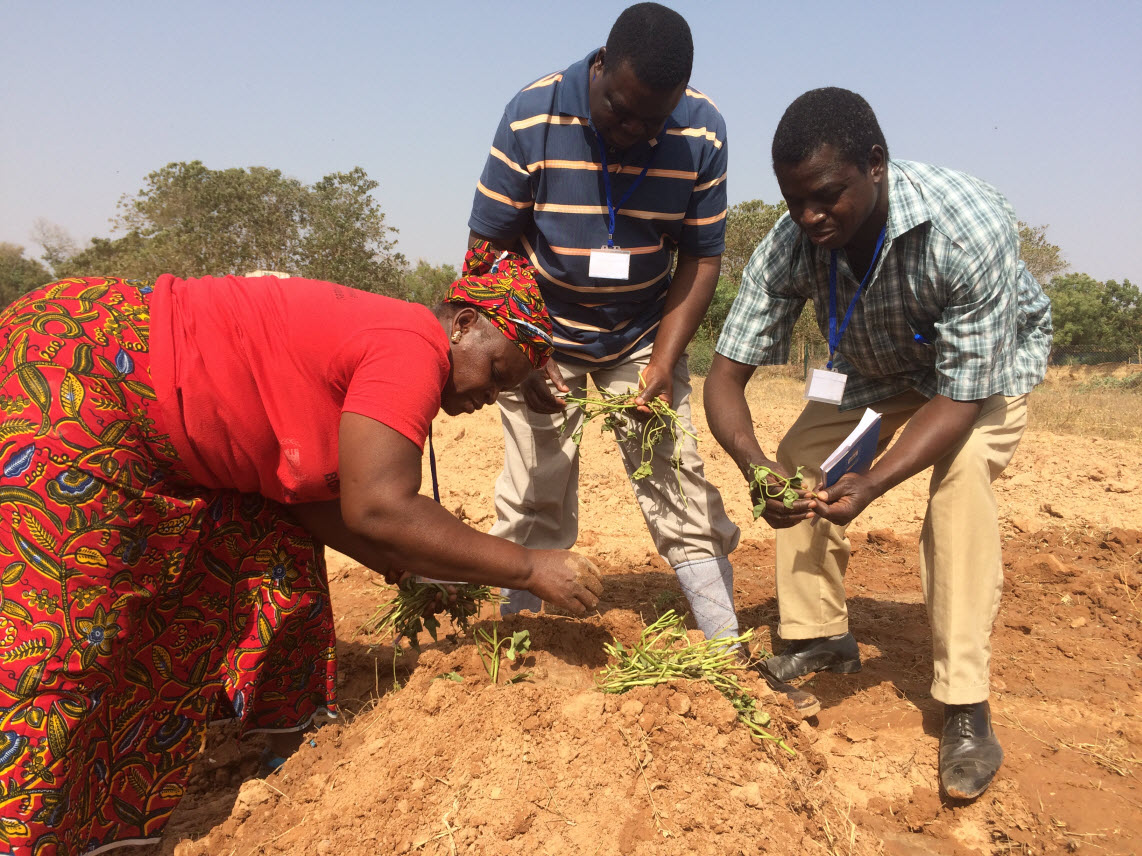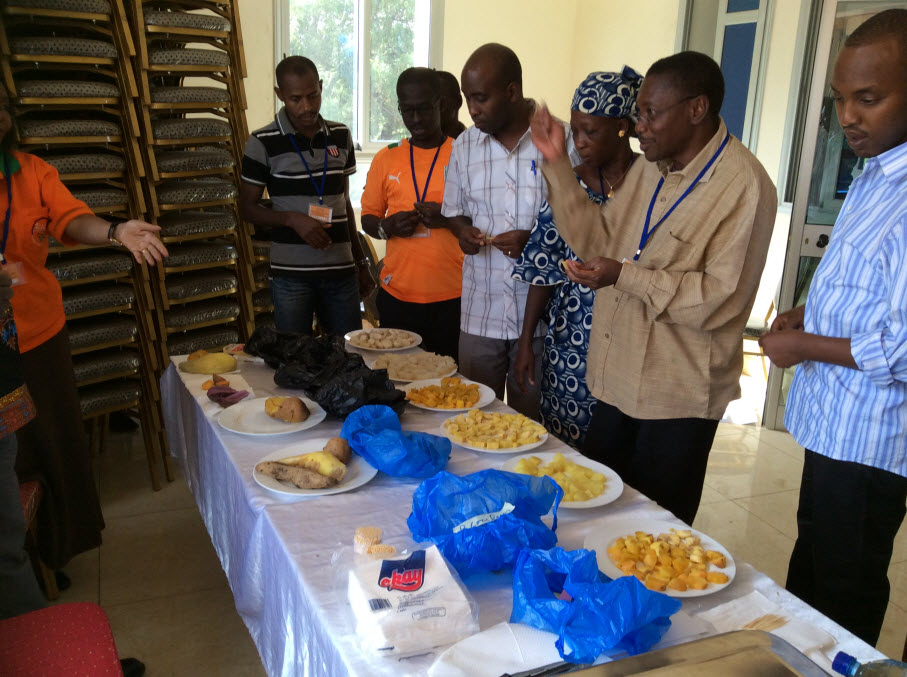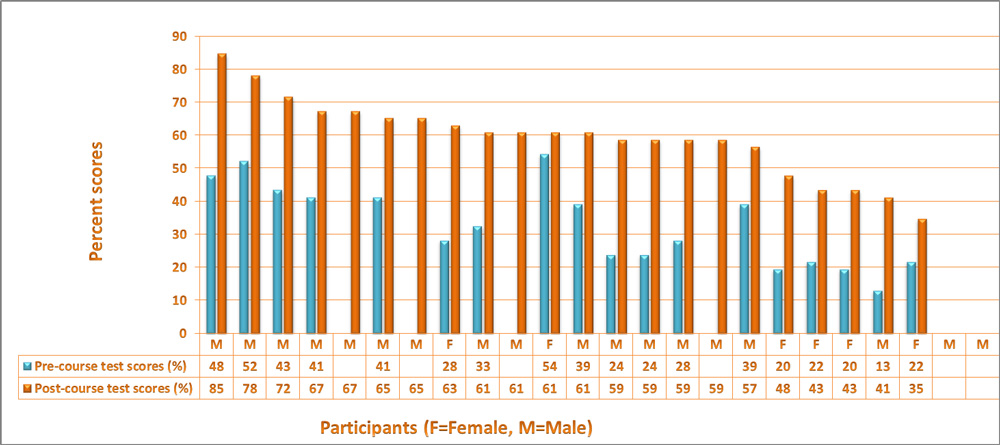The gender sensitive course was hosted by Centre Agricole Polyvalent de Matourkou (CAP-M) in Bobo-Dioulasso, Burkina Faso. The course was co-organized by the Jumpstarting project (Promouvoir la patate douce à chair orange en Afrique de l’Ouest à travers des marchés diversifiés), and the Reaching Agents of Change (RAC) project (Atteindre les Agents de Changement), in partnership with CAP-M, Institut de l’Environnement et de Recherches Agricoles (INERA), International Development Enterprises (iDE) and Helen Keller International (HKI).
Before the training, the RAC team facilitated a 5-day pre-training session. Twelve (12) facilitators (4 from CAP-M, 4 from INERA, 2 from Institut de Recherche en Sciences Appliquées et de Technologie (IRSAT), 1 from Jumpstarting Project and 1 from HKI attended the session (12th – 16th January 2015). The RAC specialists worked alongside their national counterparts and developed session plans, tailored Power Point presentations, prepared training materials and field activities for the course. The pre-training equipped the national facilitators with communication and facilitation skills which prepared them for the 10-day training.

Pre-training sessions: RAC’s Jonathan Mkumbira works closely with the national facilitators to prepare session plans in readiness for the ToT course. Photocredit: Godfrey Mulongo
The course focused on key aspects of sweetpotato value chain and highlighted the importance of recognizing gender and diversity issues in sweetpotato. The course adopted the adult learning methodology and a mix of lectures, cases, plenary and group discussions, buzz sessions, learning-by-doing exercises, field and site visits and demonstrations were used. Participants learned about the origin and importance of sweetpotato, how to identify different OFSP varieties, sweetpotato production and management aspects, management of pests and diseases, Triple S, construction of net tunnels, how to harvest, store, process, package and market OFSP, entrepreneurship as well as how to plan for training course.

Pre-training field preparations: RAC’s Jude Njoku works with national facilitators to inspect the field in readiness for practicals. Photocredit: Godfrey Mulongo
It was particularly impressive to see that in Burkina Faso, the government is encouraging farmers to plant OFSP under irrigation and farmers have responded by producing OFSP sweetpotato on mounds after harvesting rice.

RAC’s Jonathan Mkumbira , with Dakouo Gabriel (Primary facilitator) instruct a ToT participant (Secondary facilitator) through learning by doing. Photocredit: Godfrey Mulongo
Participants and facilitators were excited about the training and following is what some had to say:
“The adult learning methodology was an eye opener. Now we realize where we were going wrong in teaching adults”
“The TOT course on sweetpotato is very linked to what is done at Centre Agricole Polyvalent de Matourkou hence the college will be a promotor of OFSP. They will be looking at options of scaling up and down the TOT course to farmers”
“Net tunnel construction and rapid multiplication practical sessions were very good and educative”
“Participatory, very well mastered and very satisfying. All facilitators covered their topics very well and M&E was very well explained”

Varietal selection exercise. Photocredit: Jonathan Mkumbira
A benchmark test given at the beginning of training and at the end of the course showed that all participants had some knowledge of sweetpotato at the beginning of the course. The post-course test results showed a positive improvement in sweetpotato knowledge by 26%.

Participants’ pre and post-course test results (% scores) ranked from best to least for the post-course test results
The training provided a platform for the diverse group of sweetpotato actors from different Francophone countries to share experiences and learn, and helped to foster stronger links between institutions and projects working on sweetpotato in Francophone Africa. The capacity of national implementing agencies has been strengthened and participants developed “Action Plans.” It is expected that each participant will go back to their institution or community and organize a similar training of shorter duration through the ‘step-down’ strategy.
For more information:
Contact Hilda Munyua, Training and Communications Specialist and Deputy Project Manager – Reaching Agents of Change (RAC) project at h.munyua@cgiar.org
For more information on training courses visit: http://sweetpotatoknowledge.org/projects-initiatives/reaching-agents-of-change-rac
To download the learning toolkits visit: https://cipotato.org/publications-manual/
